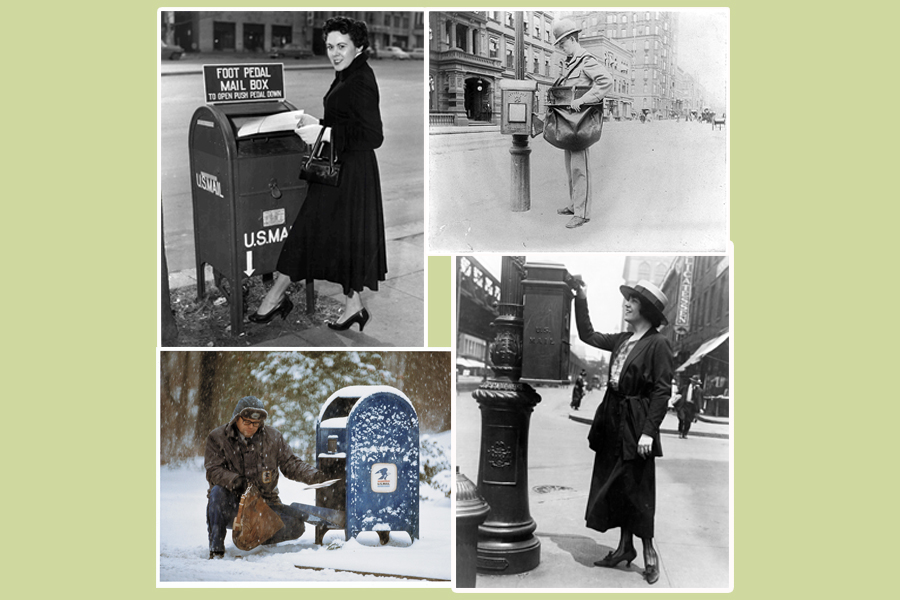Blue collection boxes are a symbol of USPS, but they haven’t always looked the way they do today. Here are four examples of how the boxes have evolved.
1. Style. In the late 1850s, the first street boxes were attached to public lampposts and walls near busy street corners. As mail volume increased, free-standing package boxes were introduced. These boxes evolved into the standard collection boxes used today.
2. Material. The first boxes were made of tin or wood and weren’t very secure. In 1858, locked, cast-iron boxes were adopted. Today’s collection boxes are made of steel.
3. Design. Flat-top boxes with an opening for letters on top were used in 1869, followed by a round-top box that opened on the side. In 1889, the opening moved to the front.
4. Color. Letter boxes have changed color several times: green, red, white, back to green, red, and green again. Later they were red, white and blue, and changed to the standard dark blue in 1970.
A newly published paper, “Mail Collection Boxes: A Brief History,” has more information. Got ideas for future editions of “The list”? Email them to uspslink@usps.gov.
